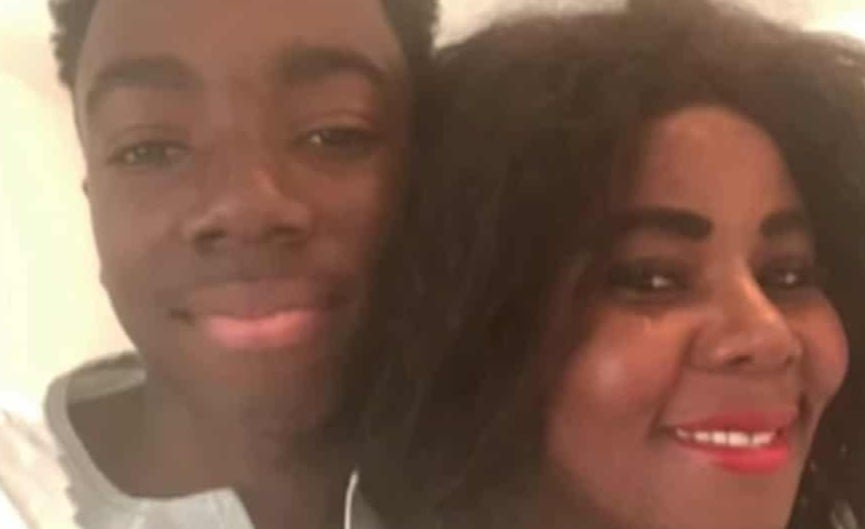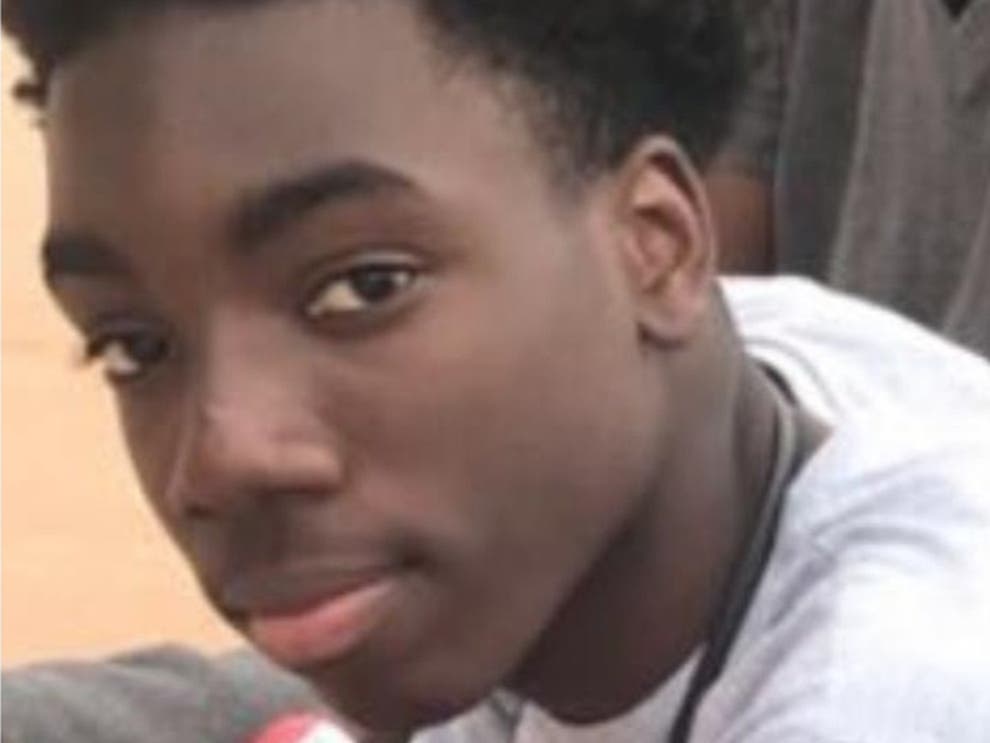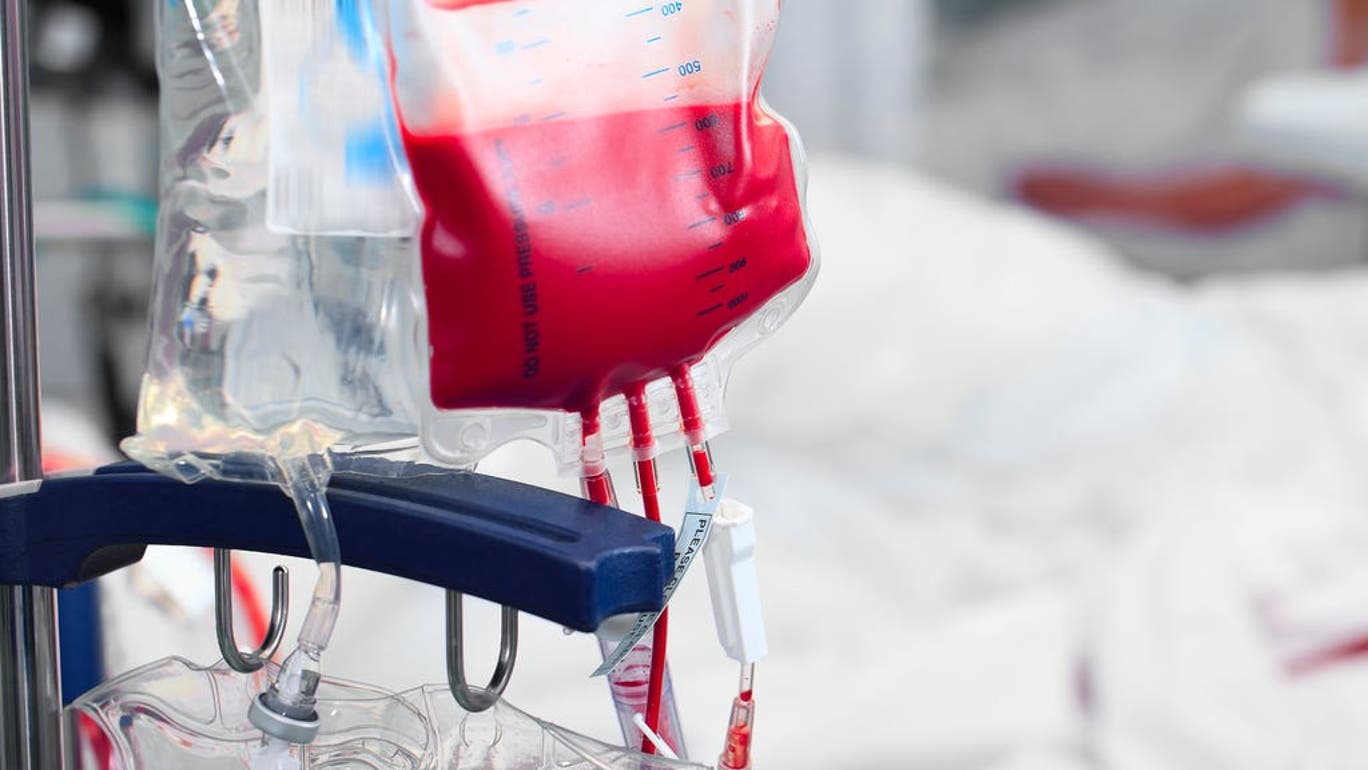Richard Okorogheye: Mother honours son’s memory with blood donation drive
‘Cultural barriers and lack of knowledge around importance of donating blood’ need to be addressed, says Evidence Joel

Your support helps us to tell the story
From reproductive rights to climate change to Big Tech, The Independent is on the ground when the story is developing. Whether it's investigating the financials of Elon Musk's pro-Trump PAC or producing our latest documentary, 'The A Word', which shines a light on the American women fighting for reproductive rights, we know how important it is to parse out the facts from the messaging.
At such a critical moment in US history, we need reporters on the ground. Your donation allows us to keep sending journalists to speak to both sides of the story.
The Independent is trusted by Americans across the entire political spectrum. And unlike many other quality news outlets, we choose not to lock Americans out of our reporting and analysis with paywalls. We believe quality journalism should be available to everyone, paid for by those who can afford it.
Your support makes all the difference.The mother of Richard Okorogheye, the 19-year-old student who was reported missing in March and whose body was found two weeks later in Epping Forest, is backing a new blood donation campaign in his memory entitled ‘Bonded by Blood: A Mothers Story’.
Prior to being reported missing, Richard had been isolating at home due to the coronavirus pandemic, only leaving to go to hospital to receive blood transfusions for the sickle cell disorder he was living with.
Bonded by Blood: A Mother’s Story, which is backed by Richard’s mother, Evidence Joel, will share 17 individual stories through a short film on how blood donation has positively impacted the lives of individuals who have received transfusions to treat illnesses such as sickle cell and blood cancer, as well as during childbirth and for a range of other medical conditions.
These stories will be told through the lens of the mothers who have supported their children on their blood transfusion journey, whilst encouraging more blood donors from Black communities to donate during either World Sickle Cell Awareness month in September, or Black History Month in October, at one of the 10 sessions taking place nationwide,
Speaking to The Independent, Ms Joel said: “We want people to know how important it is to donate blood and save lives. We want people to know that anybody can benefit from it; my son did. When he was going through crisis (and received blood transfusions), it greatly improved his quality of life.
“Blood donation campaigns like Bonded by Blood are incredibly important to encourage existing blood donors to donate regularly and new blood donors to consider donating, particularly within the Black community – to help the lives of sickle cell patients and others who require blood transfusions and exchanges to maintain and save their life.

“There are cultural barriers and lack of knowledge around the importance of donating blood. If we get rid of these barriers and the taboo around this then I think that it will positively affect change.”
At the time of her son’s disappearance, Ms Joel told The Independent that the police treated her as nuisance - a matter that’s currently being assessed by the Metropolitan Police Service - and further questioned how much officers understood about Richard’s health condition after they tried to reassure her he would “find his way to the hospital” if needed.
The grieving mother believes that more needs to be done to raise awareness about sickle cell disease across wider society.
“People need to know that the disease is real and many are suffering from it,” she said.
“Lives are at stake; when you speak to people and they ask ‘what is sickle cell?’, it’s scary because it’s something that everyone should be aware of.”
Ms Joel, who works as a community nurse, added: “Even when I trained it wasn’t addressed throughout my studies. We never talked about such things until we started working in hospitals.”
Coming to terms with Richard’s death - the cause of which remains unknown - has been difficult.
“I take each day as it comes; I do have my ups and downs - one minute I’m okay and the next minute I’m not,” Ms Joel said.
“I feel completely empty and still sometimes think he’s going to walk through the door but, of course, that’s not going to happen. Richard was very principled and caring; he prioritised other people’s happiness and would go miles to make sure you had a smile on your face. I was privileged to have him and very lucky to be his mum.
“I am grateful for the Bonded by Blood organisations coming together to do something positive in the name of my son Richard. He had a bright future ahead of him. It is my hope his legacy will be that of his name, encouraging people from the Black community to support each other by doing something so amazing such as giving blood.”

Every month NHS Blood and Transplant need 1,300 new Black donors to provide not only essential treatment for 15,000 patients living with sickle cell, but also to provide life-saving blood for use in emergencies, childbirth, during surgery, treatment of cancer and for a range of medical conditions.
Whilst people of Black heritage are 10 times more likely to have the same rare blood subtype, the shortage of Black donors makes it harder to find the best ethnically matched blood for Black patients.
The special blood donation events will take place over three consecutive weekends between 25 September and 10 October, at venues across London, Bristol, Birmingham and Manchester.
To register to donate blood and attend the Bonded by Blood: A Mothers Story blood donation sessions, individuals should call the priority booking line on 0300 303 2805. Alternatively, people can click here to complete the pre-booking form.
The campaign has been formed by a group of Black health charities including ACLT (African Caribbean Leukaemia Trust), SickleKan and Unsickle My Cells, supported by NHS Blood and Transplant.
Beverley De-Gale OBE, ACLT co-founder and director of operations, said: “The number of Black blood donors has increased in recent years but there is still a long way to go. By asking the Black community to step up and donate during World Sickle Cell Awareness Month or Black History Month, we hope it will contribute to the much-needed blood stocks now and in years to come.
“Additionally, the rare Ro blood subtype is more commonly found in Black people and that’s why Black donors are so important to ensure that patients get this lifesaving treatment.”


Join our commenting forum
Join thought-provoking conversations, follow other Independent readers and see their replies
Comments